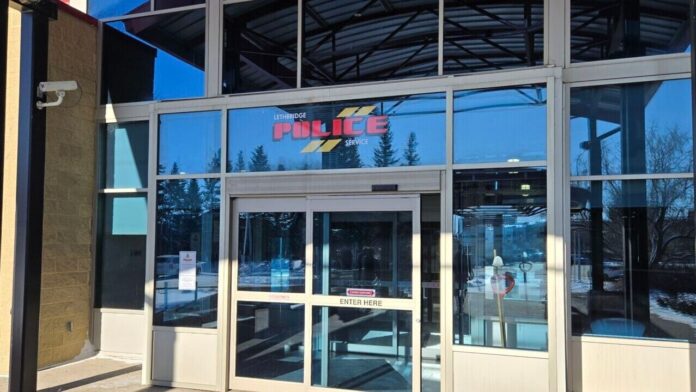The Lethbridge Police Service says last year, officers responded to almost 32,000 calls for service, with 99.4 per cent of those resolved without any use of force.
That information was presented to the Lethbridge Police Commission during its meeting on Wednesday. A use of force report must be done when any force aside from cooperative handcuffing or escort techniques are used, when there is an injury that required medical help, when a firearm or less lethal weapon is displayed, an unintentional discharge or any incident requiring notification under the Police Act.
Those written reports are reviewed to evaluate current training practices, find issues or trends that could be fixed with training.
“Our voice is our greatest tool,” says Chief Shahin Mehdizadeh. “The majority of what we do is talk to people and the ability to communicate and de-escalate situations is really what prevents harm and saves lives.”
The LPS says not all calls can be resolved with only a conversation, as use of force might be the only course of action to resolve high-risk incidents or other circumstances, to ensure the safety of victims, the responding officers or anyone else involved.
Statistics from the LPS show that every year between 2020 and 2024, police have resolved more than 99 per cent of all calls for service without any force.
In 2024, the LPS says 0.6 per cent of cases where force was used involved 248 individuals.
Police say in those cases, there were no fatalities, no hospitalizations and 195 of the subjects did not suffer any visible injuries. The remaining 53 suffered minor injuries, with just over half of them needing treatment on-scene at the hospital before being released.
Additionally, 21 officers were injured in 2024, up from 12 in 2023.
Police say no firearms were discharged in 2024 and the most common use of less-lethal force options was the deployment of Conducted Energy Weapons and police service dogs.
Last year, 80 per cent of the incidents where force was used involved people who were perceived as being intoxicated, agitated, suffering from a mental health condition, or in a state of crisis. Police note 17 per cent of individuals had access to weapons or weapons were reported, and only three per cent were perceived to be in a ‘normal’ mental state.
MENTAL HEALTH
The LPS states that all officers are trained on an ongoing basis to help them appropriately respond to calls that involve people with mental health concerns. The Lethbridge service has two Police and Crisis Teams (PACT). These pair an officer and a mental health therapist to better serve high-risk people and individuals with chronic issues.
The LPS also uses the HealthIM digital service. This gives officers a pre-response safety briefing and helps with their assessment on whether someone should be taken to a designated health facility for an evaluation.







